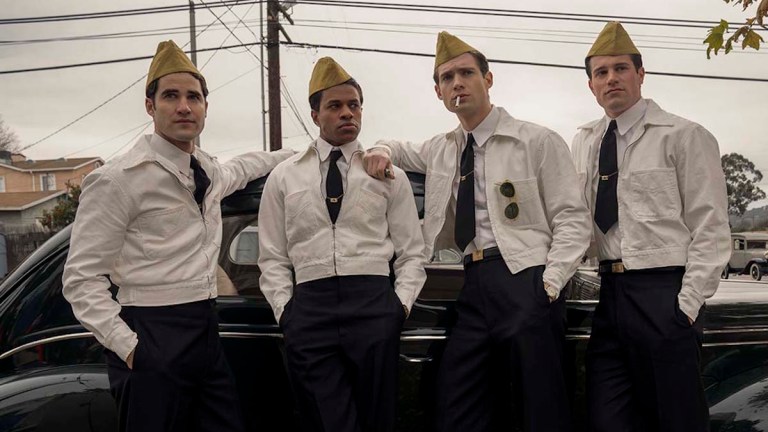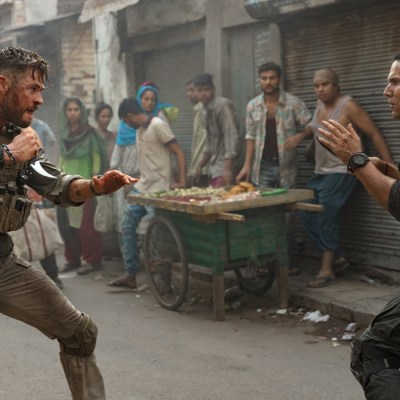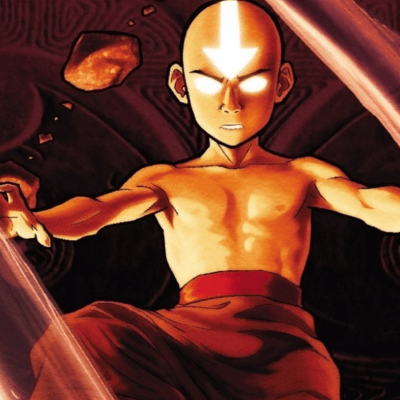Hollywood Review (Spoiler-Free)
Ryan Murphy blends the cynicism of American Horror Story with the schmaltz of Glee for a unique type of Hollywood revisionism.

This Hollywood review contains no spoilers and is based on all seven episodes.
There are two ideas that sum up what Hollywood means to Ryan Murphy, both the place and the new television series he named after it. The first is stated with cynicism by Dylan McDermott, who previously starred in Murphy’s American Horror Story: “The movies hawk an image of wholesome American virtue, right? But the folks making those movies [are] rotten to the core.” And yet, in the same episode, Darren Criss (who starred in Murphy’s Glee) dreams aloud, “Movies just don’t show us how the world is; they show us how the world can be.”
On the surface, these two ideas appear diametrically opposed, but that’s Hollywood. And it probably should’ve been Hollywood too, considering the new Netflix series from Murphy and Ian Brennan happily attempts to recontextualize, and literally revise, the “Golden Age” past while living in the gray area between that generation’s contradictions and hypocrisies. And yet that isn’t the show we get. Instead we have something that careens haphazardly between sneering nihilism and what counts as starry-eyed optimism to the modern millennial and Gen-Z audiences this show is targeted at. All of which somehow feels far more cynical than any crass barbs from McDermott. Sure, Hollywood dares to ask “What if you could rewrite the story?,” but the show is never quite sure what that story is.
Nevertheless, the yarn in question is woven from an ambitious patchwork of outsiders and minorities who were historically othered and marginalized by the Golden Age studio system. That was true from the outset of Tinseltown, and it’s true in the series’ 1947 setting when, with World War II over, young men who fought in Europe and the Pacific are making their way to dreamland with silver screen fantasies in their eyes. Among those dreamers are fictional characters like Criss’ Raymond Ainsley, a budding filmmaker who wants to put representation on the screen and who keeps the fact that he’s half-Filipino to only himself and his black girlfriend Camille Washington (Laura Harrier). Camlle, in turn, is an aspiring ingénue and the favored pupil in her acting class, yet she can only get the roles of maids that come with notes like “be more Hattie McDaniel.”
These fictional creations cross paths with real life historic figures throughout the series, some for a one-note gag like Vivien Leigh (Kate McGuinness), and some as major supporting characters like future icon Rock Hudson (Jake Picking). In ’47, Rock’s new in town and about to become the latest beefcake apple of his real-life talent agent Henry Willson’s eye (a phenomenal Jim Parsons). But Hudson’s also partaking in a romantic affair with fictional character Archie Coleman (Jeremy Pope), a would-be African American screenwriter who is making ends meet by moonlighting as a gigolo alongside fellow Hollywood aspirant Jack Castello (David Corenswet). The name of their gas station/bordello? Dreamland, of course.
At a glance, you might guess the end point of their stories, and the fate of most dreams for a world still nearly 20 years from Selma, never mind Stonewall, but when they come together while crossing paths with an older and serendipitously woke generation of closeted producers and sympathetic studio heads… well, this may not go how you expect.
Undoubtedly there will be many comparisons made in the coming weeks between Netflix’s Hollywood and Quentin Tarantino’s Once Upon a Time… in Hollywood. Without spoiling anything that isn’t in the new show’s trailer, they’re both historical fictions, and they’re both ultimately fairy tales for their creators to imagine what a better world would look like to them. One might even wonder if Murphy and Brennan are hoping to use old school Hollywood glamour as a metaphor for the credit they think shows like Glee and Modern Family deserve for shaping 21st century values.
But then that’s the key difference between Murphy’s Hollywood and Tarantino’s take on the town. One is trying to live in its period setting (to the point where it can be fairly grilled for misrepresenting historic figures like Bruce Lee), and the other is just playing dress up. That and Tarantino had the gracefulness to not follow his flights of fancy beyond Sharon Tate’s driveway. By comparison, Hollywood is as if we witnessed Rick Dalton become godfather to Sharon’s baby, talked her husband into changing the end of Chinatown to something more life-affirming, and then coached Sharon to acclaim by playing Anne Frank, Nazi Hunter Extraordinaire.
For that is how big Murphy and Brennan swing with Hollywood, and it’s by how much they miss the pitch. Because for every character that mostly works, such as Pope’s idealized version of James Baldwin, who in real life was a brilliant black author who struggled as a screenwriter trying to play in the white industry’s game, there are multiple lead characters in the show who are never developed beyond the most basic idea of what they’re supposed to represent. Harrier’s Camille is the would be leading lady who many will fight to put in the top bill of a movie, and yet Camille herself is as sidelined and underdeveloped a characterization in the actual series as the parts real life Lena Horne was saddled with for her glorified walk-on cameos as the lounge act in white-led movies. And for not one second will you believe any of the younger and exceedingly anachronistic characters were part of the WWII generation.
However, the older generation of actors fares better in inhabiting the period, with Patti LuPone, Rob Reiner, and especially Parsons all getting some scene-stealing work. But therein still lies the tonal chaos of a series that doesn’t really know what it wants to say. Take Parsons, who plays his seedy pre-pre-#MeToo era Hollywood power broker to the cheap seats. His Willson likes to sign all the best looking young dudes and then he likes to introduce them to his couch. The show both wants to wisely judge that ugliness but also revel in the sheer bitchiness of his scathing one-liners. Not knowing whether to laugh or recoil at the character, the series just ultimately decides to whitewash Willson with the same saccharine revisionism of everything else on screen.
But then I suppose that’s Hollywood, Jake, at least as a 2020 television series. Beyond providing feel-good dopamines by reassuring modern audiences of our moral superiority over the past, the show doesn’t have much to offer. While watchable due to its production values, this mismatch of incongruous ideas suffers from the clashing impulses of Murphy and Brennan’s American Horror Story shock value and their Glee era sentimental snake oil. However, both of those series worked for at least their first seasons before going off the rails. Hollywood makes it to about episode five.
Hollywood premieres its whole season on Netflix on May 1.


